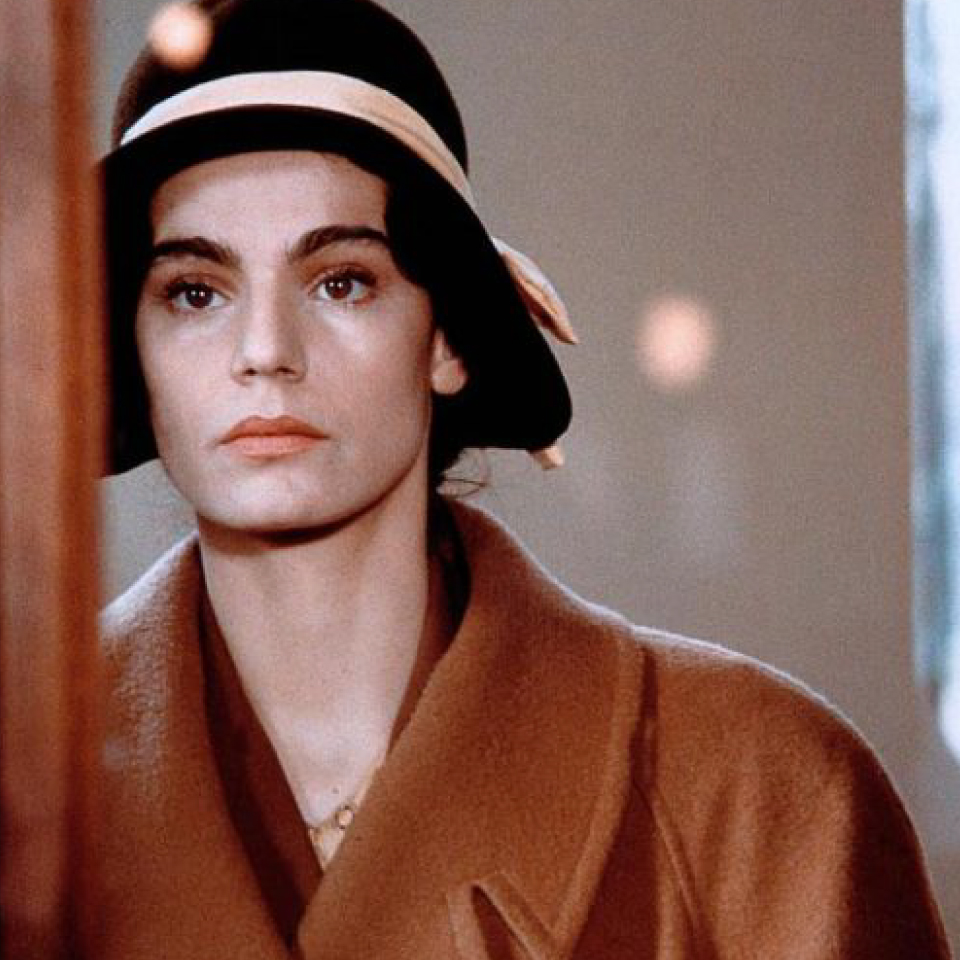Maia Morgenstern, some five years before starring as the Mother of God in Mel Gibson’s The Passion, played the role of another virgin Jew who found Israel’s salvation in the Cross of Christ. In Márta Mészáros’ 1995 Hungarian film, The Seventh Chamber, Morgenstern plays Saint Teresa Benedicta a Cruce. The film, like Gibson’s, depicts a movie-length Via Crucis. It is not the kind of film you watch with a bowl of popcorn, but with a prayerful heart.
Edith Stein, the youngest of eleven, was born into a Jewish family on the day of Yom Kippur in 1891. This providential birthday, as with other things in her life, would later be seen as a meaningful foreshadowing. The Seventh Chamber, however, does not depict the early life of this German philosopher-turned-Christian. It does not show the young and precocious Edith enchanted with the world of literature, and disenchanted with the world of religious practice. Little is seen of those glorious, yet arduous, days as a student of Husserl at the Universität Göttingen, where the world of philosophy became her all. Nor, lastly, does it render for us those years when God pursued her heart—when she witnessed “the divine power that [the Cross] bestows on those who carry it.” She later wrote these words when reflecting on her first encounter with the Cross: she marveled at the deep Christian serenity of her friend, Anna Reinach, in the face of her husband’s death in World War I. What was this power?
The film begins, appropriately, with her 1922 baptism into the death of Jesus Christ (Rom. 6:3-4), shot expressionistically with accompanying images of her in Carmel and finally at Auschwitz. Like her natural birth, her spiritual birth was a foreshadowing. We then follow Edith through her final twenty years of life—an extended Via Crucis depicted within the framework of St. Teresa of Ávila’s famous “Seven Mansions,” from which the film gets its title. Immediately after her baptism, we see Edith rejected by her mother: “You’ve betrayed us, like Jesus.” And in this manner, one after another, she bears scourging in imitation of Our Lord. “You’re not interested in philosophy, but in power,” accuses her former colleague, Franz Heller. Her family rejects her. Her colleagues reject her. Later, we see one of her fellow novice sisters reject her. In the end, the country she loves rejects her.
In the midst of her journey to the Cross, however, we witness a conviction and serenity not shared by her accusers—in particular, Dr. Heller, a philosopher-turned-Nazi and fellow Catholic. In her final conversation with him before her entrance into Carmel, the film dramatically captures Heller’s irritation at Edith as he sits under of a portrait of Herr Hitler. Edith, with poise and confidence, adjures Heller, “The mind can’t produce the truth, it can only find it.” To this philosophical truth, she soon adds a theological one: “If you want to reach Christ, never look for him without his Cross.” It is no coincidence that throughout the movie, we see a repeated flashback in which a younger Heller takes Edith’s cross necklace and casts it away—a symbol for his rejection of the logic of the Cross (cf. 1 Cor. 1:22-25).
The film’s mise-en-scène frequently shows Edith falling to the ground, evocative of Christ’s many falls. All the while, as these outward portrayals convey interior realities along the Via, we see the grace-filled calm of a saint who comes to know her vocation: “The symbol of my life is the Cross,” she tells her mother. By film’s end, she has made the long journey by rail to Auschwitz. Mocking guards greet the arriving boxcars. Edith, now Sister Teresa Benedicta a Cruce, and her sister, Rosa, are directed left—to death. The final shot of the film is of #44074, stripped naked like Christ, standing as a witness to a power stronger than death.
Mészáros’ film, not without its limitations, depicts, as was said, a Via Crucis, and highlights the central theme of Edith Stein’s life: her cruciformity with our Savior. It does not end with a hopeful resurrection scene, as does The Passion. That image is left to the viewer. Edith Stein was born into eternal life on Sunday, August 9, 1942, as saint and martyr Teresa Benedicta a Cruce—blessed by the Cross.
This piece was originally written by Br. Bernard Knapke, O.P.
